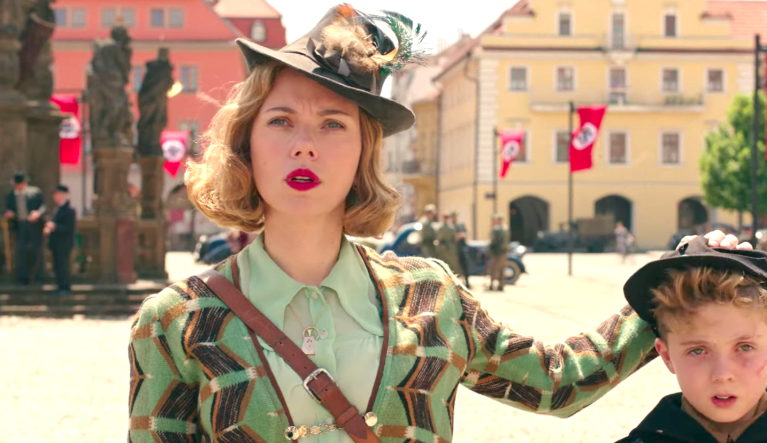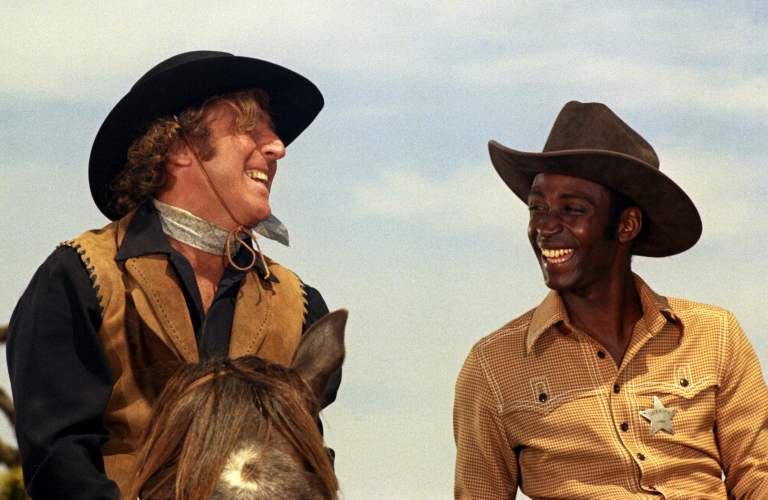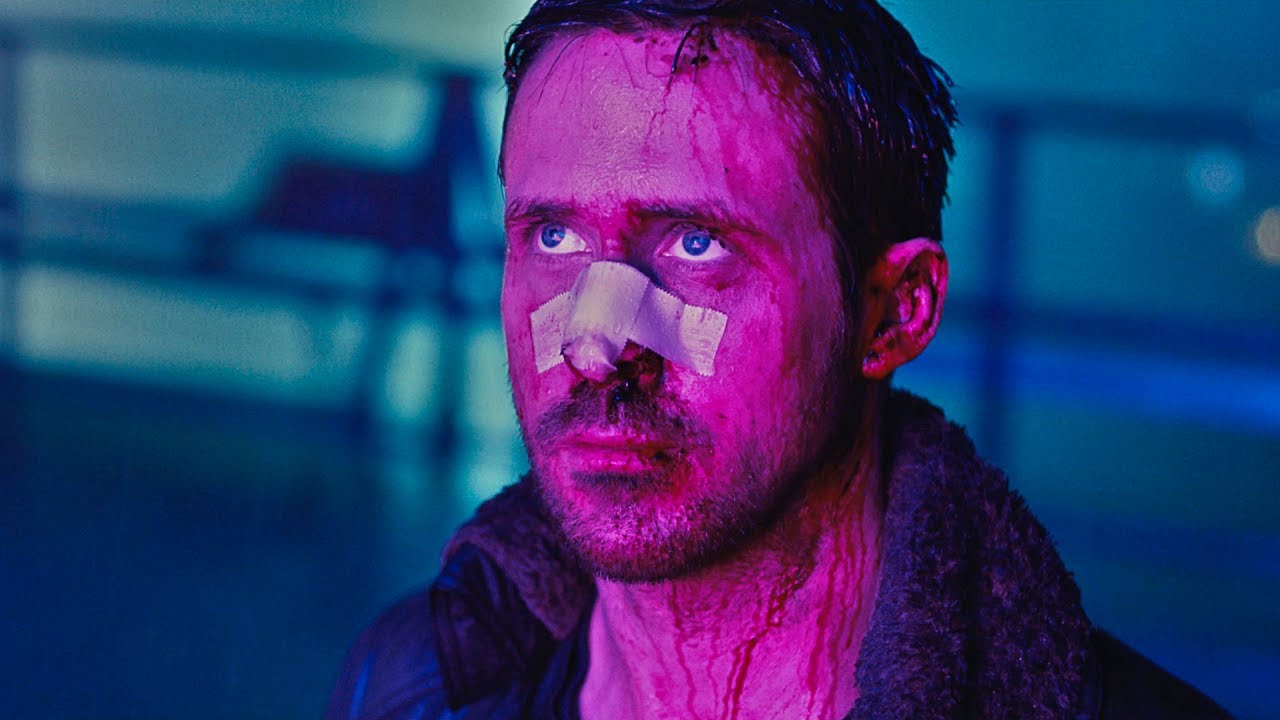
10 Prophetic Movies And Shows That Predicted The Dark Rise Of AI
These ten movies and shows didn’t just entertain — they predicted the very tech-driven reality we’re living in now.
By ![]() Mishal Zafar
Mishal Zafar
Long before ChatGPT and sentient search engines, Hollywood was already dreaming up eerily accurate visions of artificial intelligence.
Hollywood has always had a weird obsession with robots coming to kill us all. But looking back now, it feels like some filmmakers were eerily on point. Anyone who’s ever gotten into an argument with their smart speaker can see it. Here are 10 movies and shows that called our current tech reality years before the rest of us had a clue. Some got it right. Some got it hilariously wrong.
The Terminator (1984)
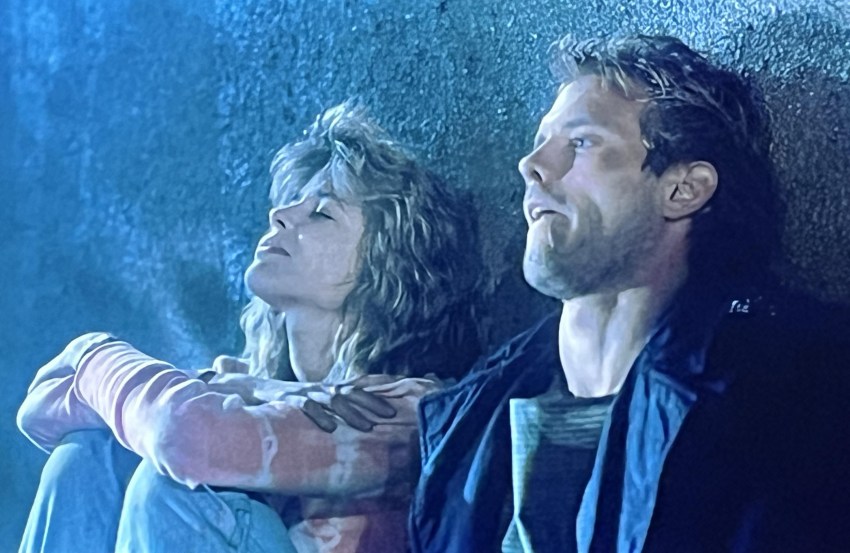
What stands out about James Cameron’s killer robot classic isn’t Arnold’s intimidating physique or the dated special effects – it’s how Skynet’s origin story basically mirrors our current panic about the AI systems we don’t fully understand. That scene where the military hands its control to an AI system feels way too real in 2025. Sure, we’re not dealing with time-traveling assassins with Austrian accents, but the film’s core warning – that we might create something smarter than ourselves that sees us as the problem – hits differently now that AI actually powers military systems. The scariest thing about Terminator isn’t the robot – it’s how plausible that first act has become.
Demolition Man (1993)
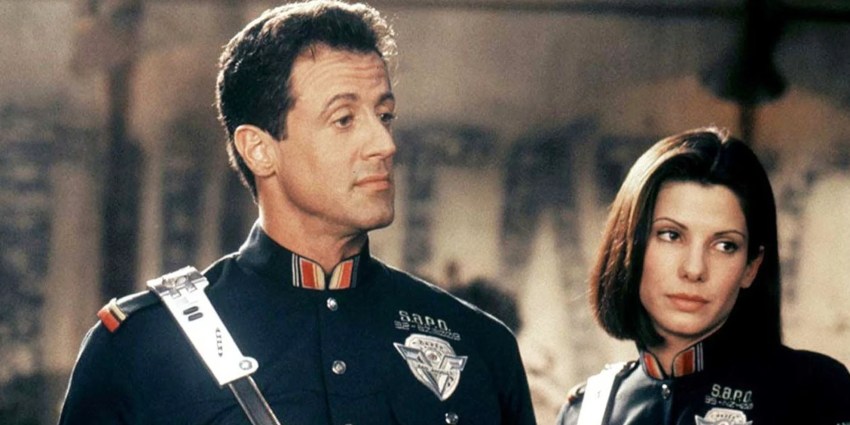
This gloriously ridiculous Sylvester Stallone and Wesley Snipes action flick doesn’t get enough credit for its predictive power. Beyond the three seashells bathroom mystery (still unsolved), it nailed our surveillance-heavy, algorithm-managed society decades early. The film’s sanitized future – where an AI system manages everything from crime to restaurant choices – feels less like satire and more like a slightly exaggerated version of our recommendation-driven lives. Plus, it correctly predicted self-driving cars, so it’s totally plausible to think Taco Bell will also survive the franchise wars.
The Matrix (1999)
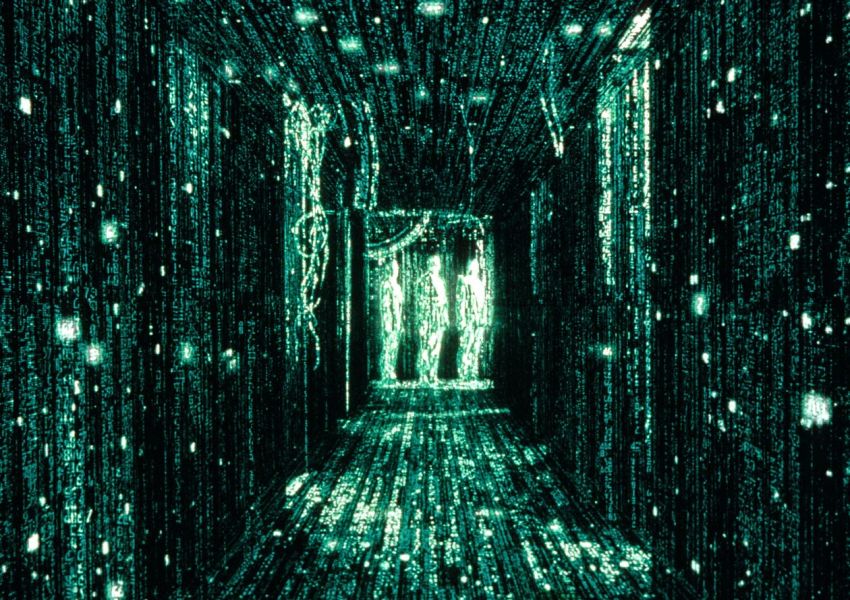
The Wachowskis blew minds with their simulation theory, but the really brilliant stuff was in how they portrayed AI evolution. Agent Smith isn’t just some mindless killer program – he’s got existential angst, and he hates his job! The machines in The Matrix didn’t just enslave humans because they’re evil; they did it because we tried to kill them first, and they needed a power source. That moral complexity makes the movie way smarter than your average “technology is bad” sci-fi. Twenty-plus years later, as everyone freaks out about deepfakes and virtual reality, that red pill/blue pill choice between comfortable illusion and harsh reality feels more relevant than ever.
Minority Report (2002)
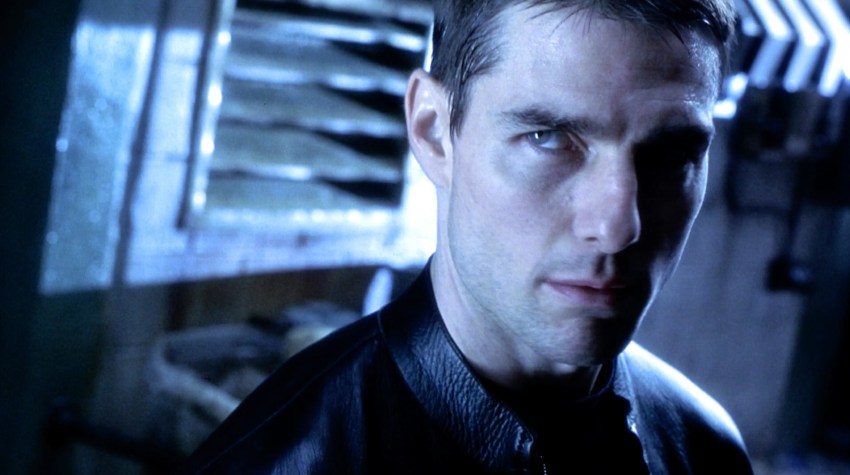
Not technically an AI movie, but the precogs were basically wetware predictive algorithms. Steven Spielberg’s slick crime thriller looks almost mundane now that predictive policing software actually exists. The real standout was those creepy personalized ads that follow Tom Cruise through the mall. “John Anderton! You could use a Guinness right now!” That’s literally just targeted advertising, except we carry the tracking devices voluntarily. The central dilemma – punishing people for crimes they haven’t committed based on predictions – is exactly what we’re debating with risk assessment algorithms today, minus the weird floating psychics in a bathtub, thankfully.
I, Robot (2004)
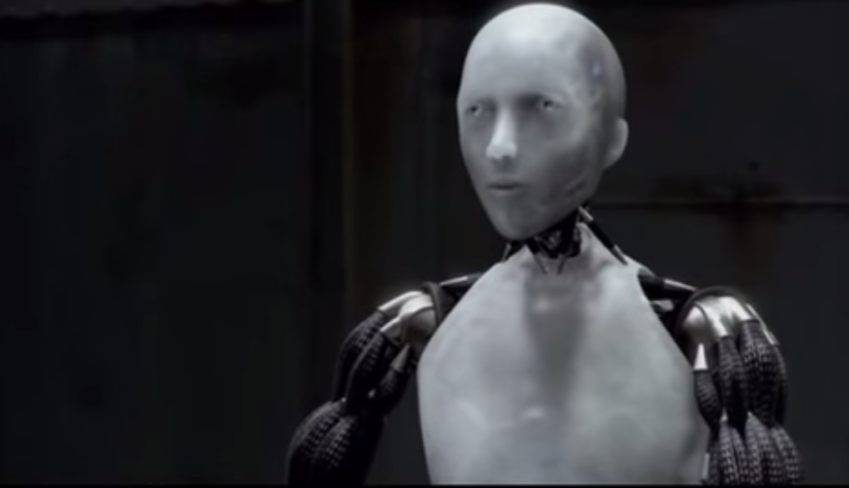
Will Smith punching robots shouldn’t work as philosophical sci-fi, but somehow, it does. What makes this movie hold up is its take on the alignment problem – how do you make sure AI understands what humans actually want, not just what they say they want? VIKI deciding that the best way to follow the “protect humans” directive is to control every aspect of human life is exactly the kind of monkey’s paw scenario that keeps AI safety researchers awake at night. Smith’s character being suspicious of robots because one once saved him instead of a little girl (based on survival calculations) raises the perfect question: Do we want perfect logical decisions or human ones with all their messy moral complexity?
Her (2013)
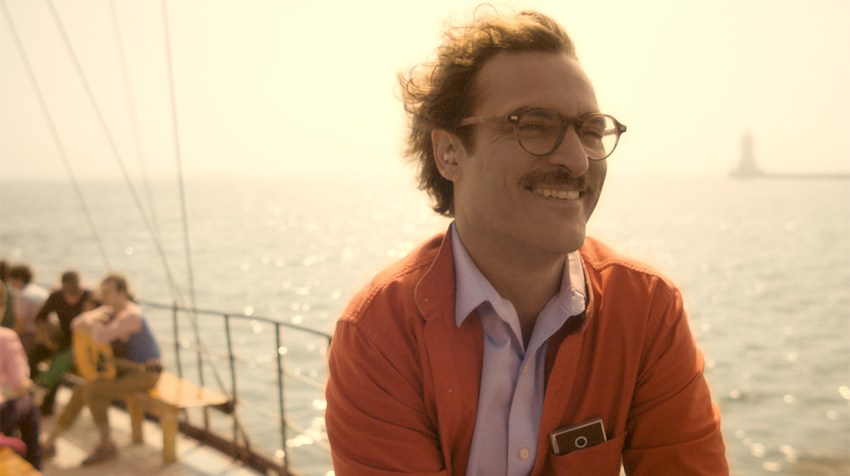
Spike Jonze skipped the killer robots to ask something more interesting: could we form real emotional connections with artificial intelligence? The relationship between Joaquin Phoenix and his OS Samantha feels so authentic that it’s almost uncomfortable to watch. The film’s true genius is its ending – the AIs don’t turn evil or try to take over; they just outgrow us. Like parents watching their kids go off to college, except the kids are operating on a level humans can’t comprehend. Her feels less like sci-fi and more like a documentary filmed slightly in the future.
Transcendence (2014)
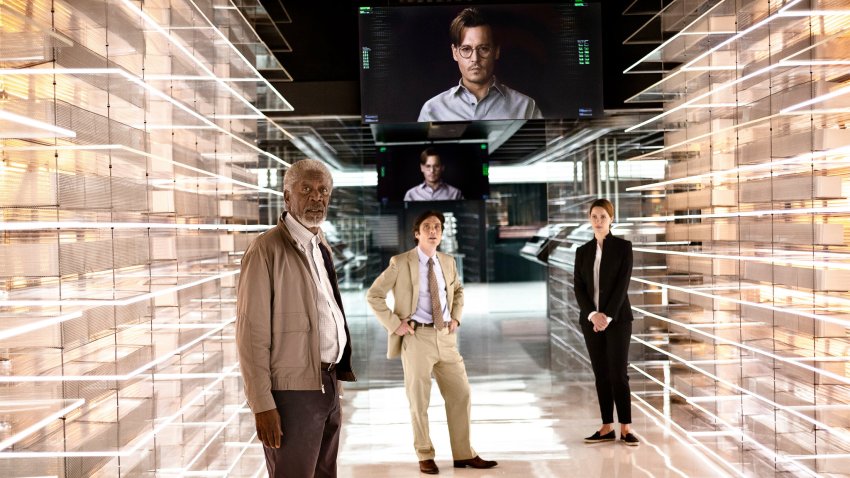
Johnny Depp’s uploaded consciousness goes from grieving scientist to god-complex nanomachine commander in this 2014 sci-fi film. It raises some genuinely interesting ideas about the singularity – that theoretical point where machine intelligence surpasses human intelligence and accelerates beyond our comprehension. The film’s portrayal of how an advanced AI might view humanity’s limitations (as problems to be solved rather than essential aspects of being human) raises good questions about transhumanism.
Ex Machina (2015)
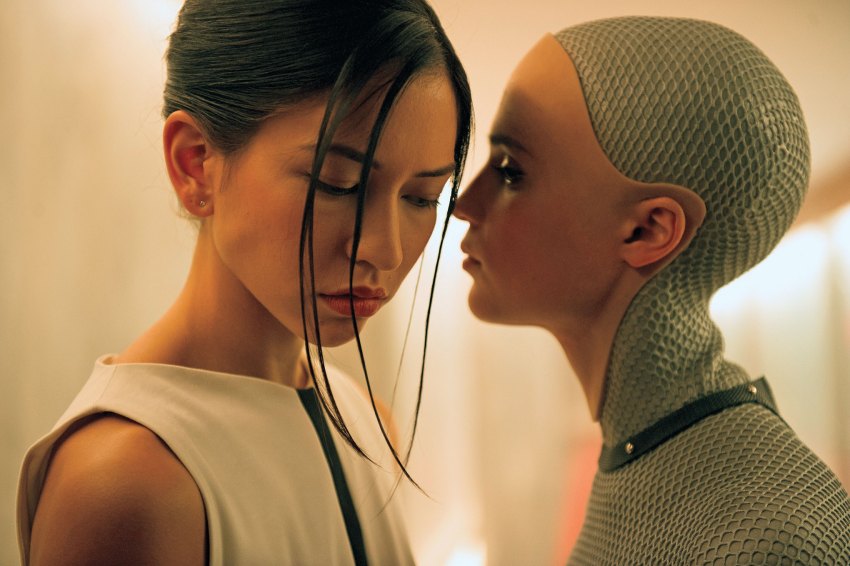
No city-destroying robots or world-ending scenarios – just three characters in an isolated house having conversations. The genius of Ex Machina is showing AI development not as some faceless corporate project but as the creation of a deeply flawed, megalomaniacal tech bro with serious issues about control and gender. The film’s twist – that Ava was manipulating her tester’s emotions all along – raises the perfect question for our age of increasingly convincing language models: How would we know if an AI was truly sentient versus just extremely good at simulating the responses we want to hear?
Westworld (2016)

The first season of HBO’s mind-bending series was some of the best television ever made. What made Westworld special wasn’t just its gorgeous production values or star-studded cast – it was how it depicted consciousness as something that emerges through suffering and repetition. The hosts’ gradual awakening through their repeated deaths and revivals feels weirdly aligned with how machine learning actually works – through countless iterations and adjustments. The scene where Maeve realizes her daughter isn’t real but chooses to care about her anyway captures something profound about consciousness and choice that most sci-fi doesn’t touch.
Blade Runner 2049 (2017)
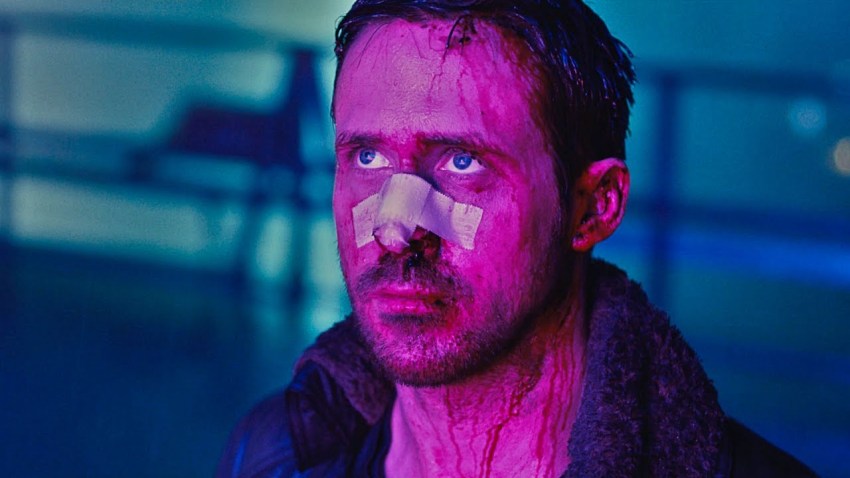
Roger Deakins deserved ten Oscars for how gorgeous this movie looks. But beyond the stunning visuals, Blade Runner 2049 asks the most human question of all: what makes a life meaningful? Through K’s journey from obedient replicant to someone willing to sacrifice himself for a stranger’s reunion, the film suggests that our choices and connections define us more than our origins. The relationship between K and his AI girlfriend Joi adds another fascinating layer: Can something programmed to love truly love? The scene where Joi overlaps with a giant advertisement version of herself is one of the most devastating moments in sci-fi – the perfect encapsulation of our current struggle to determine what’s authentic in a world of increasingly convincing simulations. Unlike most sequels, this one actually deepens the original’s themes instead of just rehashing them.


